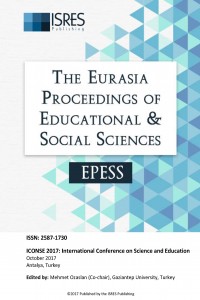Abstract
The study investigated the effect of two mode of
Teacher’s Reflection on Junior Secondary School Students achievement in Basic
Science. The pretest, posttest control group quasi- experimental design was
adopted for the study. The sample was made up of 294 junior secondary students
from four Junior Secondary Schools in Ibadan metropolis selected using
stratified random Sampling technique. The operational guide for
Reflection-in-action, Reflection-on-action and the conventional teaching
strategies were developed and used.
Also, Basic Science achievement test was also
developed and administered by the researcher. Data collected were analyzed
using analysis of covariance and description statistics to test the hypothesis
at P<0.05 The result shows that the two modes of reflection instructional
strategies was more effective than the conventional instructional strategy. The
student in Reflection-on-action group had significantly high mean score in
achievement test
reflection –in-action group
control group had the least
should be practiced and used by the Basic Science teachers in order to help
student gain more in achievement. In-service training programme need to be
organized for the Basics Science Teachers to disseminate the effectiveness of
reflection-in-action and reflection-on-action teaching strategy.
References
- Agoro, A. A. (2013). Effect of Reflective-Reciprocal Teaching Strategies on Pre-service Teachers’ Achievement in Integrated Science and Science Process Skills in Nigerian Colleges of Education. An unpublished Ph.D. Thesis University of Ibadan Bolton, G. (2010). Reflective practice: writing and professional development. London: Sage. Clarke, P.A.J. (2007). Reflective Teaching Model: A Tool for motivation, collaboration, self-reflection and Innovation in Learning. Georgia State University. Dewey, J. (1933). How We Think: A Restatement of the relation of Reflection Thinking to the Educative Process. Chicago: Henry Regnery. Feiman-Nemser, S. (1990). “Teacher Preparation: Structural and conceptual Alternative, In Handbook of Research on Teacher Education, Ed. W. Robert Houston, New York: Macmillan Publishing Company, Inc.” Giaimo-Ballard C. & Hyatt L. (2012). Reflection-in-Action Teaching Strategies Used by Faculty to Enhance Teaching and Learning. Networks. An Online Journal for Teacher Research. 14(2) Henderson, J. G. (1989). “’positioned Reflective Practice: A curriculum Discussion”, Journal of Teaching Education, (March-April 1989), 10-14 Krause, K. L. (2004). Reflective teaching, Educational Psychology for learning and Teaching, 13, 1-44, Nelson Australia press ltd. Retrieved on November, 27, 2010. http://66.102.1.104/- scholars hl=x9=cache:OWs50pgkaisj:www.thouson learning.com.au/higher/-education/krauwe/media/krause-chapter-13.pdftrekated:owsso pgkaisJ:scholar.google.com Larrivee, B. (2000). Transforming Teaching Practice: Becoming the critical reflective teacher: Reflective Practice, 1(3), 293-307 Leich, R. & Day, C, (2000). Action Research and Reflective Practice: towards a holistic view’ Educational Action Research, 8 (1), 179 -193. Lesley, T. S. (1989). “Editorial”, Journal of Teaching Education, (March-April, 1989) xxxx (2) Orlich, D. C Harder, R. J., Callahan, R. C, Travisan, M. S & Brown, A. H. (2010). Teaching strategies. A guide to Effective instruction. Ninth Edition Wads worth CEN GAGE learning U.S.A Poblete, D. (1999). A Reflective Teaching Model: An Adventist Assessment. 24th International Faith and Learning Seminar Held at Andrews University, Berrien Springs, Michigan, U.S A. June 20=July2, 1999 Polland, A. (2008). Reflective Teaching 3rd Edition, Continuum International Publishing group. Great Britain Schon D.A. (1983). The Reflective Practitioner, How Professionals Think in Action, Basic Books. Strouse, J. H, (2001). Exploring Socio-Cultural Themes in Education. Upper Saddle River, NJ. Tom, A. R., (1985). “Knowledge Resources for improving the content of Pre-service Teacher Education” Journal of Teacher Education, Sept., Oct., 1985.//
Abstract
References
- Agoro, A. A. (2013). Effect of Reflective-Reciprocal Teaching Strategies on Pre-service Teachers’ Achievement in Integrated Science and Science Process Skills in Nigerian Colleges of Education. An unpublished Ph.D. Thesis University of Ibadan Bolton, G. (2010). Reflective practice: writing and professional development. London: Sage. Clarke, P.A.J. (2007). Reflective Teaching Model: A Tool for motivation, collaboration, self-reflection and Innovation in Learning. Georgia State University. Dewey, J. (1933). How We Think: A Restatement of the relation of Reflection Thinking to the Educative Process. Chicago: Henry Regnery. Feiman-Nemser, S. (1990). “Teacher Preparation: Structural and conceptual Alternative, In Handbook of Research on Teacher Education, Ed. W. Robert Houston, New York: Macmillan Publishing Company, Inc.” Giaimo-Ballard C. & Hyatt L. (2012). Reflection-in-Action Teaching Strategies Used by Faculty to Enhance Teaching and Learning. Networks. An Online Journal for Teacher Research. 14(2) Henderson, J. G. (1989). “’positioned Reflective Practice: A curriculum Discussion”, Journal of Teaching Education, (March-April 1989), 10-14 Krause, K. L. (2004). Reflective teaching, Educational Psychology for learning and Teaching, 13, 1-44, Nelson Australia press ltd. Retrieved on November, 27, 2010. http://66.102.1.104/- scholars hl=x9=cache:OWs50pgkaisj:www.thouson learning.com.au/higher/-education/krauwe/media/krause-chapter-13.pdftrekated:owsso pgkaisJ:scholar.google.com Larrivee, B. (2000). Transforming Teaching Practice: Becoming the critical reflective teacher: Reflective Practice, 1(3), 293-307 Leich, R. & Day, C, (2000). Action Research and Reflective Practice: towards a holistic view’ Educational Action Research, 8 (1), 179 -193. Lesley, T. S. (1989). “Editorial”, Journal of Teaching Education, (March-April, 1989) xxxx (2) Orlich, D. C Harder, R. J., Callahan, R. C, Travisan, M. S & Brown, A. H. (2010). Teaching strategies. A guide to Effective instruction. Ninth Edition Wads worth CEN GAGE learning U.S.A Poblete, D. (1999). A Reflective Teaching Model: An Adventist Assessment. 24th International Faith and Learning Seminar Held at Andrews University, Berrien Springs, Michigan, U.S A. June 20=July2, 1999 Polland, A. (2008). Reflective Teaching 3rd Edition, Continuum International Publishing group. Great Britain Schon D.A. (1983). The Reflective Practitioner, How Professionals Think in Action, Basic Books. Strouse, J. H, (2001). Exploring Socio-Cultural Themes in Education. Upper Saddle River, NJ. Tom, A. R., (1985). “Knowledge Resources for improving the content of Pre-service Teacher Education” Journal of Teacher Education, Sept., Oct., 1985.//
Details
| Journal Section | Articles |
|---|---|
| Authors | |
| Publication Date | December 10, 2017 |
| Published in Issue | Year 2017 Volume: 8 |



